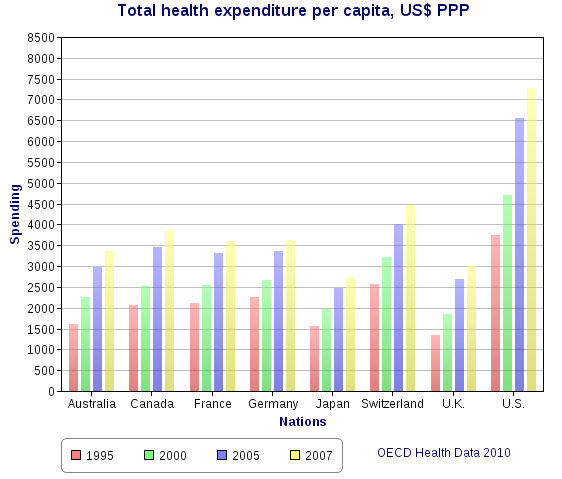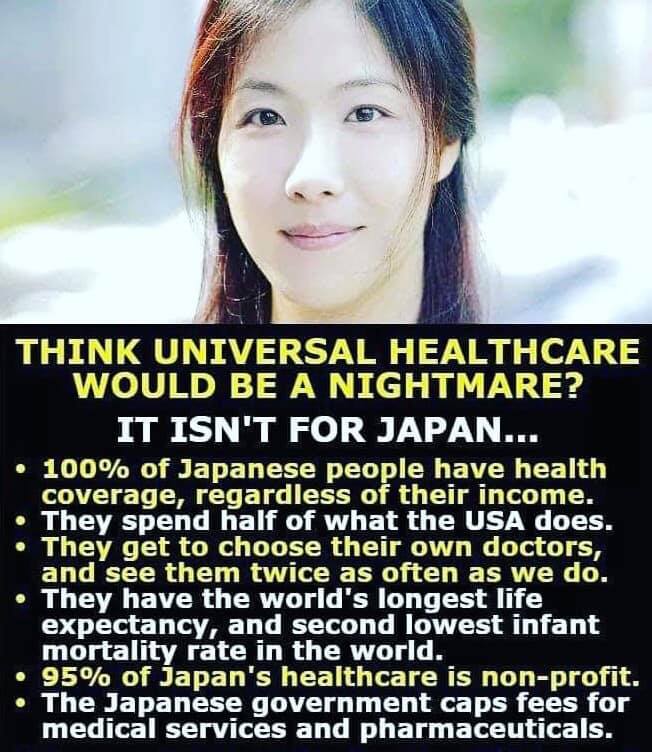The gist of it is true
Health Care System in Japan
"100% of Japanese people have their healthcare regardless of income"
This is partially true. All are mandated to have coverage, but that coverage is not 100%, and not all have the mandated coverage.
The health care system in Japan provides healthcare services, including screening examinations, prenatal care and infectious disease control, with the patient accepting responsibility for 30% of these costs while the government pays the remaining 70%.
All residents of Japan are required by the law to have health insurance coverage. People without insurance from employers can participate in a national health insurance programme, administered by local governments.
Uninsured patients are responsible for paying 100% of their medical fees, but fees are waived for low-income households receiving a government subsidy. Fees are also waived for homeless people brought to the hospital by ambulance.
"They spend half what the USA does"
True. The amounts in the figure are the sums of both out-of-pocket and government contributions to healthcare expenditures.

"They get to choose their own doctor"
True
Patients are free to select physicians or facilities of their choice and cannot be denied coverage.
"They [...] see them twice as often as we do"
It is more than that.
The Japanese visit a doctor nearly 14 times a year, more than four times as often as Americans.
"They have the worlds longest life expectancy"
True.
List of countries by life expectancy — which is based on WHO numbers — puts Japan at #1.
"They have [...] the second lowest infant mortality rate in the world"
According to the CIA World Factbook, true.
"95% of japans health care is non-profit"
This claim is contentious, since it relies on how you define "health care". According to the Wikipedia page...
Hospitals, by law, must be run as non-profit and be managed by physicians. For-profit corporations are not allowed to own or operate hospitals. Clinics must be owned and operated by physicians.
The contention here is if we should count "clinics" as part of the "health care", what profit rules apply to "clinics", and whether the government mandated health insurance covers visits to "clinics".
"The Japanese government caps fees for medical services and pharmaceuticals"
True, according to the Wikipedia page:
Medical fees are strictly regulated by the government to keep them affordable. Depending on the family income and the age of the insured, patients are responsible for paying 10%, 20%, or 30% of medical fees, with the government paying the remaining fee.
Also, monthly thresholds are set for each household, again depending on income and age, and medical fees exceeding the threshold are waived or reimbursed by the government.


